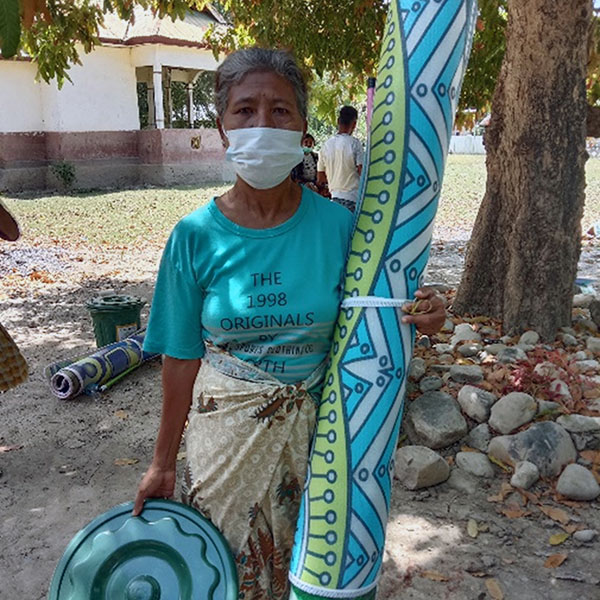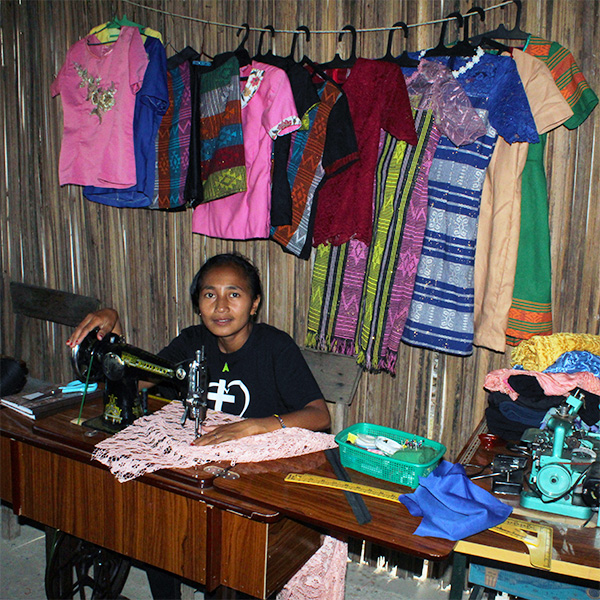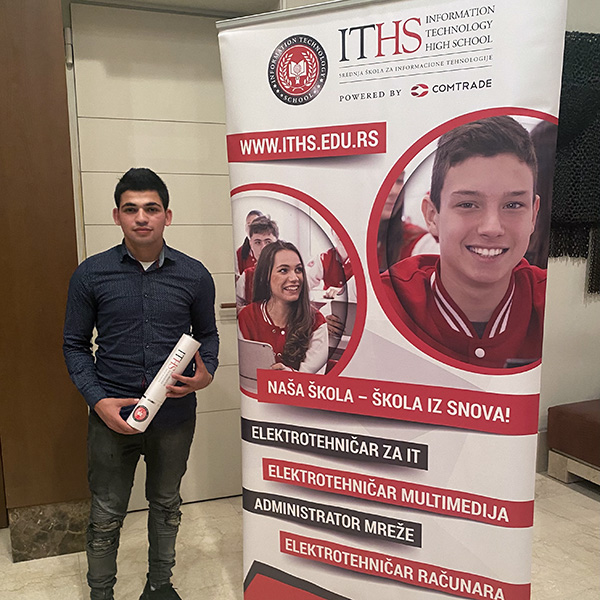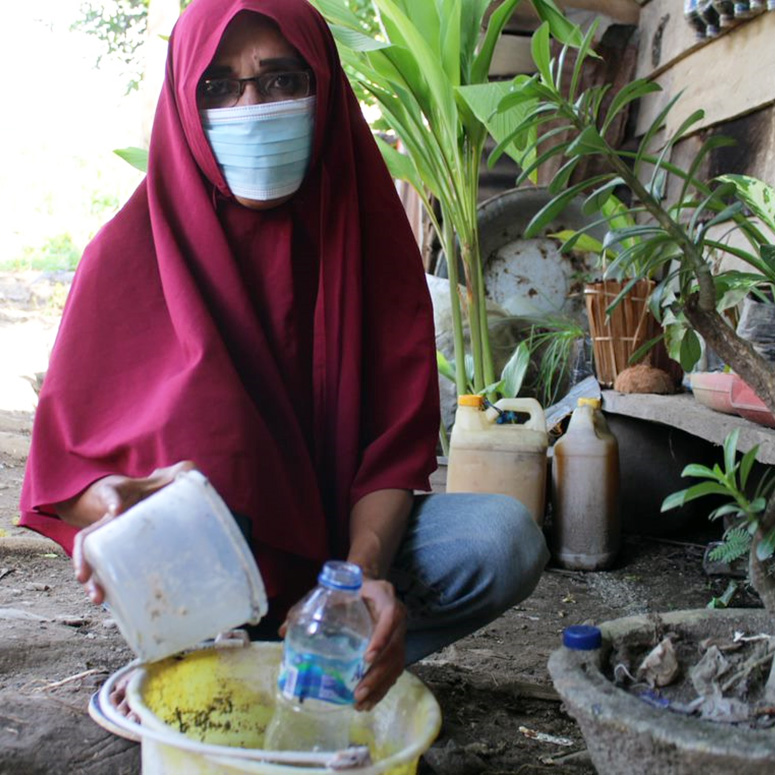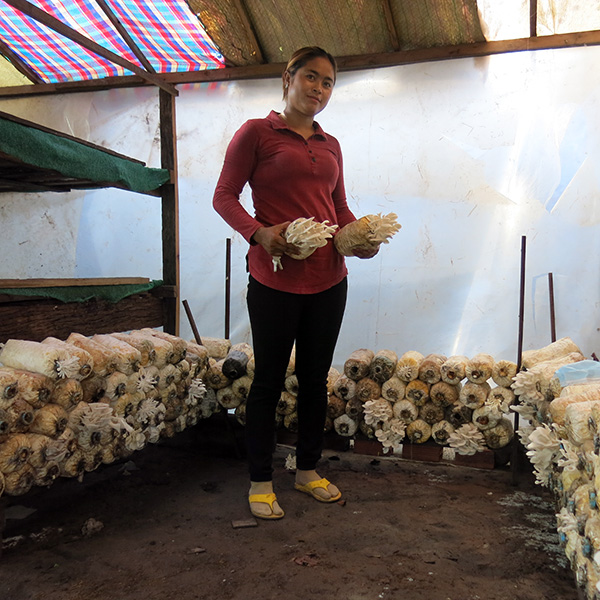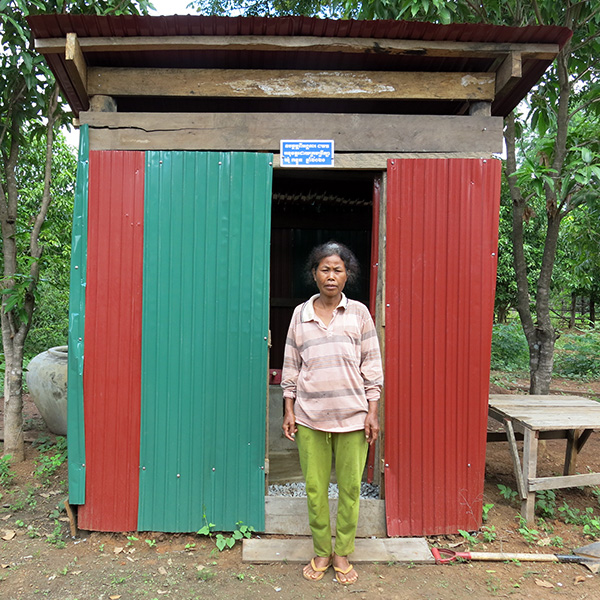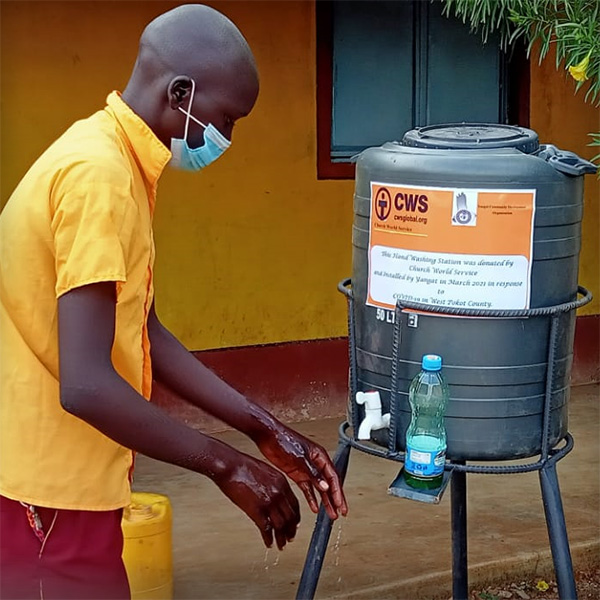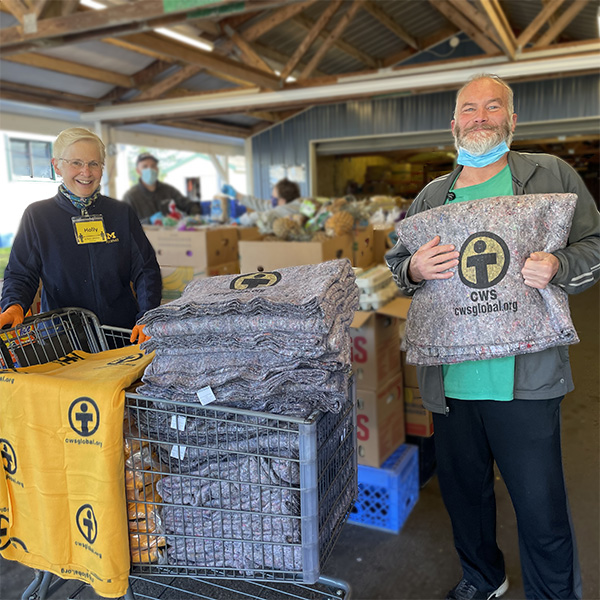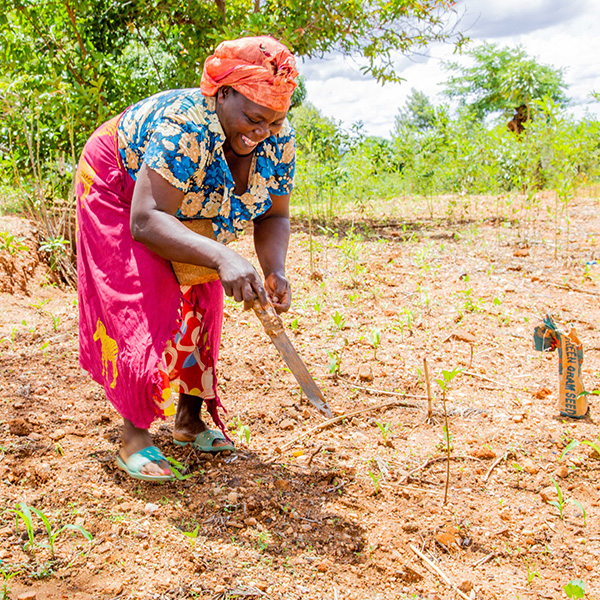Stories of Change
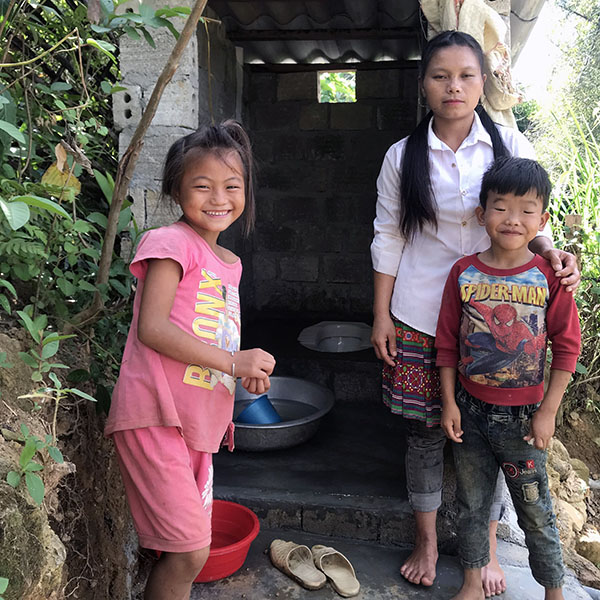
So and her children with the family's new sanitary latrine.
Building Latrines in Nam Vai Village Vietnam
In the village of Nam Vai, high in the mountains of Phuc Than commune in Vietnam, 80 families from the Mong ethnic minority group live with minimal access to water and sanitation. As of June 2021 only 10 families in the village had latrines, with most villagers relieving themselves daily along streams and forest edges.
Trang Thi So, 27, and her family never had a latrine. She and her husband Van A Lu often used the stream bank as a bathroom. Their three children, ages 10, 9 and 5, went to the bushes near their house.
In July, CWS hosted a community-led total sanitation start-up in the village. So attended the activation session and realized the importance of building sanitary latrines.
“In the past, not many families in the village had latrines. Most of us defecated freely, so we felt normal. Through attending the session, I realized that we were doing it badly, not only unhygienic for the community but also for my own family. So, I signed up to build a sanitary latrine for my family right in the event,” said So.
In August CWS hosted a technical training to guide the villagers on how to build a low-cost sanitary latrine that suits well with family economic conditions, customs and habits of the people in Nam Vai village. Lu actively participated and was nominated by the people to build latrines for the village.
Thanks to Lu’s work, in partnership with CWS, So’s family now has a sanitary latrine. When asked why he didn’t build latrine before, Lu said that he didn’t realize why he had to build latrine, didn’t have technical skills and thought it would cost a lot of money. Now with technical instructions and a mold provided by the project, it is quick and simple to do. He told us that the latrine materials cost him only 2 million Vietnamese Dong, or about $88 USD, to buy bricks, sand, stone, a squat toilet and water pipe. He and he villagers provided the labor to dig holes, make concrete rings, and build the walls themselves.
So confided: “We had not built a latrine because almost no one in the village did it, and I just wandered around. It was very difficult in rainy days because of slippery paths and bad smell. In dry season, it was very embarrassing because there is no vegetation to cover, it is easy to see each other and shy when doing open defecation. Now I have a latrine, my life is much better.”
According to Lu, about a month after the CWS project, the village’s six-person team built 60 underground tanks, and 10 families made the upper part themselves to complete the latrines. During this time people in the village are busy harvesting rice, but after the harvesting they will focus on finishing the latrines.
Nam Vai village now has a plan to have 100% families build latrines to achieve open-defecation free status by December 2021.
Collected by Tran Van Thang, CWS Field Officer; Written by Nguyen Van Ty, WASH Program Officer

